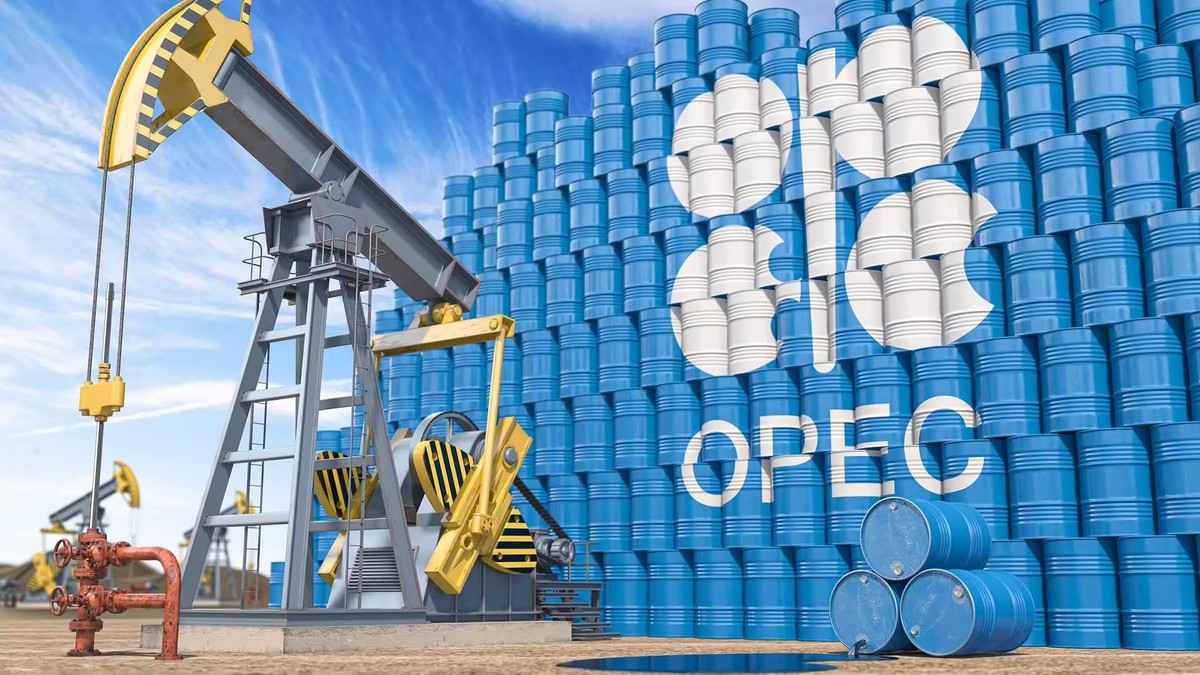14/09/2025
14/09/2025

KUWAIT CITY, Sept 14: The Organization of Petroleum Exporting Countries (OPEC) marked its 65th anniversary Sunday, emphasizing the importance of stable markets and multilateral dialogue for the future.
OPEC was established between September 10-14, 1960, following intensive meetings in Baghdad, Iraq. The founding members included Kuwait, Saudi Arabia, Iraq, Iran, and Venezuela. Kuwait’s delegation was represented by Ahmad Sayed Omar, alongside Saudi Arabia’s Abdullah Al-Tariki, Iran’s Fuad Rouhani, Iraq’s Tala'at Al-Shaibani, and Venezuela’s Juan Pablo Perez Alfonzo.
According to OPEC, the organization was founded during a period of significant international economic and political transition, characterized by widespread decolonization and the emergence of many new independent states in the developing world.
At the time, the international oil market was dominated by the "Seven Sisters" multinational oil companies, which OPEC states deliberately spiked prices twice in 1959 and 1960, causing severe harm to oil-exporting countries. This manipulation was a catalyst for OPEC’s creation.
The founding meeting established a system to ensure price stability and guaranteed production, addressing the needs of both producers and consumers. It also aimed to enhance cooperation among member countries and unify policies as necessary, while allowing new members to join with approval from the original five founding states.
The OPEC agreement was officially registered with the United Nations Secretariat on November 6, 1962, in accordance with Article 102 of the UN Charter, which requires international agreements to be registered.
Initially, OPEC set up its headquarters in Geneva, Switzerland, in 1960 before moving to Vienna, Austria, in 1965. Qatar joined the organization in 1961, followed by Libya and Indonesia in 1962. Today, OPEC consists of 12 member countries.
Over seven decades, OPEC has maintained its principles and values, ensuring the stability of oil and energy markets. The organization is governed by a Board of Governors and an Economic Council—the former being the main executive body and the latter responsible for economic studies. Several committees oversee production monitoring, internal audits, and other functions.
In 1976, OPEC established the OPEC Fund for International Development, headquartered in Vienna, aimed at fostering cooperation between OPEC members and developing countries through financial assistance and loans.
Kuwait has played an integral role in OPEC activities, both within the organization and through agreements outside of it, such as the OPEC+ framework. In January 2022, OPEC members nominated Kuwaiti Dr. Haitham Al-Ghais as Secretary General for a three-year term beginning in August 2022. His mandate was renewed for an additional three years in August 2025, highlighting Kuwait’s prominent leadership within OPEC.
On Sunday, Kuwait’s Minister of Oil Tareq Al-Roumi said OPEC’s founding marked a historic turning point in the global energy sector. He noted Kuwait’s pivotal role from the outset in supporting OPEC’s policies and achieving its strategic objectives.
In a statement to Kuwait News Agency (KUNA), Al-Roumi described OPEC’s establishment as the start of a new phase for producing countries that affirmed sovereignty over natural resources and fostered a collective vision for national and economic development.
He said Kuwait was not only a founding member but also an active partner in establishing cooperation among producing countries and consolidating the principle of national sovereignty over resources to serve sustainable development.
Al-Roumi emphasized OPEC’s decades-long contributions to supporting member states’ local petroleum industries, maintaining oil market stability, and participating in international dialogue to enhance global energy security. He added that the organization continues to support the global economy and balance the interests of both producers and consumers through enlightened policies.
He highlighted the creation of the OPEC Fund for International Development in 1976 as a key step in expanding OPEC’s impact, aiding ambitious social and economic development programs in many countries. Kuwait has invested in this cooperation to bolster national projects and development initiatives, reflecting its leadership in sustainable development inside and outside the organization.
Al-Roumi noted OPEC’s major role in coordinating international negotiations related to the United Nations Framework Convention on Climate Change (UNFCCC), helping create a favorable environment through long-term forecasts and strategies promoting a comprehensive approach. This includes investing in various energy types and modern technologies while ensuring balance, gradualism, and social, economic, and environmental well-being.
Despite facing numerous challenges and geopolitical fluctuations throughout its history, OPEC’s well-planned strategies have maintained supply security and global market stability. The organization encourages investment across all energy types and adopts modern technologies, balancing economic, social, and environmental dimensions.
Al-Roumi pointed to the formation of the OPEC Plus alliance at the end of 2016 as a pivotal milestone, which helped stabilize oil supplies during the COVID-19 pandemic. Kuwait played an active role in supporting collective coordination policies that led to the largest and longest voluntary production adjustments in oil market history. These efforts received international acclaim and strengthened confidence in OPEC’s policies.
He affirmed Kuwait’s continued support for OPEC’s strategic role in the global energy system, stressing that the organization remains a cornerstone in balancing growing energy demand, environmental sustainability, and social and economic well-being. This reflects the responsibility of producing countries toward their peoples and the world.
“Today we celebrate the 65th anniversary of OPEC’s founding,” Al-Roumi said. “We are confident that Kuwait, with its continued leadership role, will remain, under the guidance of His Highness the Amir Sheikh Meshal Al-Ahmad Al-Jaber Al-Sabah, His Highness the Crown Prince Sheikh Sabah Khaled Al-Hamad Al-Sabah, may God protect and preserve them, and His Highness the Prime Minister Sheikh Ahmad Abdullah Al-Ahmad Al-Sabah, may God protect him, an effective partner in strengthening cooperation between producing countries and providing a model to be emulated in adhering to responsible oil policies that ensure market stability and energy sustainability for future generations.”



